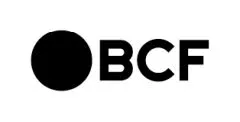We use them all the time to make our online conversations more expressive. Emojis have become part of our daily lives, but who owns them? The question arises whenever a company wants to use them as a trademark or include them in a mark.
Emojis are these little icons that we often use in our written online communications to replace a word, as punctuation or to convey an emotion or an idea.
Most of them are very common and are recognized on every platform. However, a platform may depict an emoji in a different way. Apple, for example, uses a neon green water pistol instead of a realistic representation of a gun.
Do Emojis Benefits from Intellectual Property Protection?
First of all, because an emoji is an image, it is likely to be protected by copyright. A combination of elements may also be protected by copyright. A set of emojis suggesting a particular idea could potentially be protected if their selection and arrangement is original enough. A specific emoji or a series of emojis used to distinguish its goods or services from those of others could also potentially constitute a trademark which could be registered, and therefore, monopolized.
Emoji's Originality at Issue
At the same time, given the simplicity or the common character of most emojis such as the smiley face or the heart, it may be argued that they are not original enough to qualify as an artistic work under the Copyright Act. As a matter of fact, most emojis include elements that are essentials to illustrate their meaning. These elements have been used for a very long time. Therefore, no one can claim them as their own. That would be the case for the heart or the smiley emojis.
The same goes for trademarks, which cannot be descriptive or non distinctive. For example, a peach emoji could not be registered in association with fruits or a teacher emoji in association with educational services.
Some custom emojis, such as Kim Kardashian's KIMOJI, are more likely to be copyrighted because they include original features. Actually, the term KIMOJI is registered as a trademark in Canada. Using these Kim Kardashian emojis could also raise image rights issues, just like any other emoji representing a specific person. A number of celebrities have created such custom emojis, including Canadian pop-star Justin Bieber.
So far, there are no emojis that seem to be registered as trademarks in Canada. It would also appear that intellectual property rights related issues regarding emojis have yet to be brought before Canadian courts. However, given the increasing number of technological platforms and experiences available to the public, the number of disputes involving digital works is likely to increase.
It is therefore understood that it is certainly possible to continue to punctuate our messages with smiling emojis. However, before using any emoji in a commercial manner, such as in a trademark, it is best to first verify that such use does not infringe any third-party intellectual property rights. If no rights are infringed and the emoji or series of emojis is used to distinguish your products or services from those of others in the marketplace, it could act as a trademark and potentially be registered, and thus monopolized, to become a business asset. However, this will require some creativity.
For any questions regarding your company's copyrights and trademarks, do not hesitate to contact ourteam of experts.
Originally published 1 April 2022.
The content of this article is intended to provide a general guide to the subject matter. Specialist advice should be sought about your specific circumstances.


